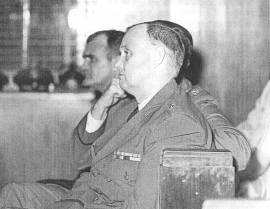of current developments, domestic and international, in the evolution of the Air Force role in the outer space region of the aerospace poses a requirement for the capability to react quickly, effectively and authoritatively, in order that the Air Force position on each item of interest may be determined and represented to the best effect."[1]
In August, General Childre's successor, Maj Gen Horace M. Wade, responded to General Kuhfeld. General Wade noted that the Air Force Council had decided in July 1962 to have the assistant deputy chief of staff for research and technology (AF/RDC) be the "focal point" for all space matters. Wade also noted that that within AF/RDC an office would be established for the specific purpose. He noted that this focal point in AF/RDC would be responsible for only coordination of these efforts but that the functional offices within the Air Staff would retain responsibility for handling space matters. As General Kuhfeld had earlier requested, General Wade established a permanent working group to consider the policy and legal aspects of space doctrine. Among the responsibilities of the permanent working group was the review of interagency position papers on space policy referred to the Air Force.[2]

Brig Gen Richard C. Hagan. While serving on the JAG staff
at HQ USAF, he pressed for a more aggressive stance by the
Air Force on the development of international law on space
issues. He supported the first Air Force space law symposium
and personally financed the costs of the conference.
71
